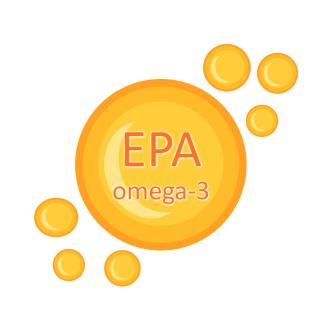
Selenium is a trace mineral essential to human health, playing a crucial role in various physiological processes. Despite being required in small amounts, it has significant impacts on maintaining the body's health, primarily through its antioxidant properties, support for the immune system, and its contribution to thyroid and reproductive health. Moreover, selenium's ability to protect cells from oxidative damage has positioned it as a key player in the prevention of certain chronic diseases, including cancer. In this comprehensive exploration, we will delve into selenium's various roles, its sources, and the scientific evidence supporting its essential functions.
1. Selenium's Role in Protecting Cells from Damage
One of selenium's most important roles in the human body is protecting cells from oxidative damage. Oxidative stress is a process where free radicals, which are unstable molecules, react with other molecules in the body, potentially leading to cell damage. Over time, this can contribute to the development of chronic diseases such as cardiovascular disease, cancer, and neurodegenerative conditions like Alzheimer's and Parkinson's disease.
Selenium contributes to the body’s antioxidant defense system through its role in selenoproteins, specifically glutathione peroxidases (GPx), a family of enzymes that neutralize harmful free radicals. Glutathione peroxidases protect lipids, proteins, and DNA from oxidative damage, thus safeguarding cellular structures from premature aging and dysfunction.
Mechanism of Action: Selenium and Glutathione Peroxidase
Glutathione peroxidase enzymes, of which selenium is an integral component, catalyze the reduction of hydrogen peroxide (H₂O₂) and organic hydroperoxides to water and corresponding alcohols. This reaction neutralizes potentially harmful compounds and prevents them from causing damage to cell membranes, proteins, and DNA. The balance between the production of free radicals and the action of antioxidants like selenium-dependent enzymes is crucial for maintaining homeostasis and preventing cell damage.
- Selenium’s Role in Antioxidant Recycling: In addition to its function in GPx, selenium is involved in the regeneration of other antioxidants, such as vitamin C and vitamin E. This ensures that the antioxidant defense system remains robust and that these vitamins can continue to neutralize free radicals.
2. Selenium’s Antioxidant Function: More Than Just Protection
While selenium’s protective role in antioxidant defense is crucial, its effects extend beyond merely combating oxidative stress. By supporting the function of antioxidant enzymes, selenium indirectly influences several biological processes, including inflammation and immune response regulation.
Selenium and Inflammation
Chronic inflammation is implicated in the development of many diseases, including heart disease, diabetes, and certain cancers. Selenium’s ability to modulate inflammation has been the subject of much research, with studies suggesting that adequate selenium intake helps reduce inflammatory markers in the body. By decreasing oxidative stress, selenium can lower the levels of C-reactive protein (CRP), an inflammatory marker associated with heart disease and other conditions.
- Anti-inflammatory Properties: Selenoproteins help regulate immune system activity by modulating the production of inflammatory cytokines. This may explain why selenium supplementation has been shown to benefit individuals with conditions like rheumatoid arthritis and inflammatory bowel disease (IBD), where inflammation plays a key role.
3. Selenium and Immune System Support
A healthy immune system is essential for protecting the body against infections, pathogens, and even the development of cancerous cells. Selenium plays an important role in the proper functioning of both the innate and adaptive immune systems, influencing the production and activity of white blood cells, which are crucial in combating infections.
Mechanisms of Selenium in Immune Function
- T-Cell Function: Selenium affects the proliferation of T cells, a type of white blood cell that plays a central role in adaptive immunity. T cells are responsible for recognizing and attacking infected cells or pathogens in the body. In selenium deficiency, T-cell production is compromised, leading to a weakened immune response.
- Antiviral Activity: Several studies have suggested that selenium supplementation can enhance the body’s resistance to viral infections. For instance, selenium has been shown to inhibit the replication of the influenza virus, HIV, and even certain strains of the common cold. This is thought to be due to selenium’s ability to influence cytokine production, helping the immune system mount an effective response to viral invaders.
- Influence on Antibody Production: Selenium is also crucial for the production of antibodies, which are proteins that the immune system uses to identify and neutralize foreign objects like bacteria and viruses.
Studies have highlighted selenium's role in reducing the severity of illnesses such as the flu, hepatitis, and some types of pneumonia. Its antiviral properties are particularly significant given the global burden of viral infections.
4. Selenium and Thyroid Health
The thyroid gland, located in the neck, is responsible for producing hormones that regulate metabolism, growth, and development. Selenium is especially important for thyroid health because it is involved in the production and regulation of thyroid hormones.
Thyroid Hormone Metabolism
Selenium is a key component of the enzymes iodothyronine deiodinases, which are responsible for converting the inactive thyroid hormone thyroxine (T4) into the active form triiodothyronine (T3). This conversion is essential for maintaining healthy metabolism, energy levels, and overall thyroid function.
- Protection Against Thyroid Damage: The thyroid gland contains more selenium per gram of tissue than any other organ in the body, emphasizing the mineral’s importance to thyroid health. Selenium-dependent enzymes help protect the thyroid from oxidative damage caused by hydrogen peroxide, which is produced during the synthesis of thyroid hormones. This protection is vital for preventing conditions like Hashimoto’s thyroiditis, an autoimmune disorder where the immune system attacks the thyroid gland.
- Selenium and Hypothyroidism: Selenium supplementation has been studied for its potential benefits in people with hypothyroidism, particularly those with autoimmune thyroid conditions. Several clinical trials have demonstrated that selenium supplements can reduce the levels of antibodies that attack the thyroid, improving symptoms and quality of life for individuals with these conditions.
5. Selenium and Reproductive Health
Selenium is essential for both male and female reproductive health, influencing fertility, pregnancy outcomes, and overall reproductive function.
Male Reproductive Health
In men, selenium plays a key role in spermatogenesis (the production of sperm). Selenoproteins are involved in the formation of sperm cells and are critical for ensuring sperm motility and integrity. Selenium’s antioxidant properties protect sperm cells from oxidative damage, which can impair motility and reduce fertility.
- Selenium and Sperm Quality: Studies have shown that selenium supplementation can improve sperm motility and overall sperm quality in men with fertility issues. This is thought to be due to selenium’s role in protecting the structural integrity of sperm cells and reducing oxidative damage.
- Selenium Deficiency and Male Infertility: Selenium deficiency has been linked to reduced sperm production, decreased sperm quality, and an increased risk of male infertility. Conversely, adequate selenium levels are associated with improved sperm health and fertility.
Female Reproductive Health
For women, selenium is equally important for reproductive health. Adequate selenium levels are necessary for a healthy pregnancy, as the mineral helps protect both the mother and the developing fetus from oxidative stress and supports proper thyroid function, which is critical for fetal development.
- Selenium and Pregnancy Outcomes: Selenium deficiency during pregnancy has been associated with an increased risk of preeclampsia, a serious condition characterized by high blood pressure and organ damage, typically affecting the liver and kidneys. Supplementing with selenium during pregnancy may reduce the risk of preeclampsia and other complications.
- Selenium and Miscarriage: Some research suggests that low selenium levels are associated with an increased risk of miscarriage. By protecting the developing embryo from oxidative damage, selenium may contribute to better pregnancy outcomes.
6. Selenium’s Role in Cancer Prevention
Selenium has attracted significant attention for its potential role in reducing the risk of certain cancers. Its ability to protect cells from oxidative damage, modulate the immune system, and influence the repair of DNA suggests that selenium could play a protective role against cancer.
Research on Selenium and Cancer
Several studies have examined the relationship between selenium levels and cancer risk, with some suggesting that selenium supplementation may reduce the incidence of certain types of cancer, particularly prostate, lung, and colorectal cancers.
- Prostate Cancer: Selenium’s role in reducing the risk of prostate cancer has been the subject of several large studies. While some findings have been inconclusive, others suggest that selenium supplementation may be beneficial for men at high risk of prostate cancer, particularly those with low baseline selenium levels.
- Lung Cancer: Selenium’s antioxidant properties are thought to play a protective role in lung cancer prevention, particularly in individuals exposed to environmental toxins like cigarette smoke, which increases oxidative stress and DNA damage.
- Colorectal Cancer: Selenium’s protective role against colorectal cancer has been supported by studies showing that higher selenium levels are associated with a reduced risk of developing this type of cancer.
7. Sources of Selenium: How Do We Get It?
Selenium is not produced by the human body, so it must be obtained from dietary sources. The selenium content in food is highly dependent on the selenium concentration in the soil where crops are grown and animals graze. Regions with selenium-poor soils, such as parts of China and Europe, may have populations at higher risk of selenium deficiency.
Dietary Sources of Selenium
- Brazil Nuts: Perhaps the most concentrated source of selenium, Brazil nuts contain high amounts of the mineral. Eating just one or two Brazil nuts per day can provide more than the recommended daily intake of selenium.
- Seafood: Fish and shellfish are excellent sources of selenium. Tuna, sardines, and shrimp are particularly rich in selenium, making them good choices for boosting selenium intake.
- Meat and Poultry: Beef, chicken, and turkey are all good sources of selenium, particularly if the animals are raised in areas with selenium-rich soil.
- Eggs: Eggs provide a moderate amount of selenium and can be a valuable source of the mineral for those who do not consume meat or fish.
- Grains and Cereals: Whole grains, cereals, and other plant-based foods can provide selenium, though their content varies depending on the soil in which they are grown. In regions where the soil is selenium-deficient, these foods may not provide adequate amounts of the mineral.
- Dairy Products: Milk, yogurt, and cheese also contain selenium, though in smaller amounts compared to animal products like meat and fish.
Recommended Selenium Intake
The recommended daily intake of selenium varies by age, gender, and life stage:
- Adults: The recommended daily allowance (RDA) for adults is 55 micrograms per day.
- Pregnant and Lactating Women: Pregnant women require slightly more selenium, with an RDA of 60 micrograms per day. Lactating women need 70 micrograms per day.
- Children: The RDA for children ranges from 20 micrograms per day for infants to 40 micrograms per day for teenagers.
Excessive selenium intake, however, can be harmful and lead to a condition known as selenosis, characterized by gastrointestinal upset, hair loss, white blotchy nails, and mild nerve damage. The tolerable upper intake level (UL) for selenium is set at 400 micrograms per day for adults.
Selenium is a vital trace mineral with far-reaching effects on human health, from protecting cells against oxidative damage to supporting the immune system, reproductive health, thyroid function, and even cancer prevention. Maintaining adequate selenium levels through a balanced diet rich in selenium-containing foods like Brazil nuts, seafood, meat, and grains is essential for overall health. As with any nutrient, balance is key, as both deficiency and excess selenium can have detrimental effects on the body. Through continued research and understanding, selenium’s role in preventing chronic diseases and maintaining well-being continues to emerge as a critical component of nutritional science.






